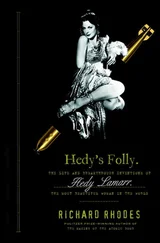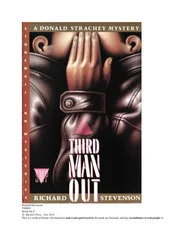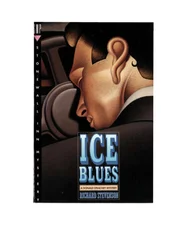Richard Stevenson - Strachey's folly
Здесь есть возможность читать онлайн «Richard Stevenson - Strachey's folly» весь текст электронной книги совершенно бесплатно (целиком полную версию без сокращений). В некоторых случаях можно слушать аудио, скачать через торрент в формате fb2 и присутствует краткое содержание. Жанр: Криминальный детектив, на английском языке. Описание произведения, (предисловие) а так же отзывы посетителей доступны на портале библиотеки ЛибКат.
- Название:Strachey's folly
- Автор:
- Жанр:
- Год:неизвестен
- ISBN:нет данных
- Рейтинг книги:3 / 5. Голосов: 1
-
Избранное:Добавить в избранное
- Отзывы:
-
Ваша оценка:
- 60
- 1
- 2
- 3
- 4
- 5
Strachey's folly: краткое содержание, описание и аннотация
Предлагаем к чтению аннотацию, описание, краткое содержание или предисловие (зависит от того, что написал сам автор книги «Strachey's folly»). Если вы не нашли необходимую информацию о книге — напишите в комментариях, мы постараемся отыскать её.
Strachey's folly — читать онлайн бесплатно полную книгу (весь текст) целиком
Ниже представлен текст книги, разбитый по страницам. Система сохранения места последней прочитанной страницы, позволяет с удобством читать онлайн бесплатно книгу «Strachey's folly», без необходимости каждый раз заново искать на чём Вы остановились. Поставьте закладку, и сможете в любой момент перейти на страницу, на которой закончили чтение.
Интервал:
Закладка:
Timmy and I went into the room together for a brief stay. Timmy spoke reassuring and affectionate words to Maynard, who stared up at us weakly, quizzically. He obviously had questions but no way of asking them. When Timmy asked him if he'd like an explanation as to why he was lying badly wounded in a hospital bed, Maynard blinked furiously, yes, yes. Timmy gave him a quick rundown of the shooting and the confusing aftermath. Maynard shook his head in amazement at Timmy's story. Then, apparently exhausted by his attempt to make sense of what had happened to him, he drifted off again. We gazed at Maynard a moment longer, outraged and sickened all over again at what had happened to our friend.
Back in the ICU lounge, Timmy and I managed to maneuver Bud Hively, the Blade writer, and Dana Mosel, the Post reporter, into a corner and then brought the conversation around to Jim Suter and the mysterious quilt panel. Hively was interested in Suter's fate because he knew him, and Mosel had managed to wangle an assignment from the Post metro editor to follow up on the odd panel and the just-as-peculiar act of vandalism.
"I talked to a woman at the Names Project in San Francisco," Mosel said, "and she gave me the name and address of the man in D.C. who submitted the panel last May. But there's no record of a David Phipps in or around the District.
The phone number, which I called, is a fake, and the address is at a Capitol Hill Mailboxes, Etcetera. It would take a court order to find out who actually rented the box. Those private outfits contract with the Postal Service and they're subject to the same federal privacy laws that a post office has to observe."
Mosel, a slender, pretty, auburn-haired woman in a linen suit and a pair of well-worn tennis shoes, had her notebook out and flipped through it in search of additional details she thought might interest us. She had told Timmy earlier that she'd been in the Peace Corps in Malawi in the midsixties, and she'd gotten to know Maynard through the former-Peace-Corps-volunteer writers' network. This was a web of several hundred people whose reach into U.S. journalism and letters seemed to resemble, as Mosel had described it, Pat Robertson's idea of the grip of the II-luminati on eighteenth-century Europe.
"Amy Chavez, the Names Project staffer," Mosel went on, "was as mystified as everybody else by the Suter panel, and she said a lot of their people are unnerved by this thing. But they've never asked for death certificates or other documentation in the past, and she doubts they'll start doing it now. This type of weirdness just hasn't been a problem."
Bud Hively said, "There's a respect for the quilt-a reverence almost-that's felt even by most of the people who think it absorbs angry emotions that should be fueling political action instead. There's one panel made by a dead man's friends who wrote on the panel, 'He hated this quilt and so do we.' But they're still part of it, even if they think it's wrong, and I don't think they would play games with the quilt or desecrate it."
"No," Timmy said, "that would feel like an insult not to the quilt project but to all the people whose names are there."
Hively, a muscular, pug-nosed man with a shaved head and a mustache the color and shape of the pyramid at Chichen Itza, said he thought whoever had sent in the panel memorializing a man who'd been alive when the panel was submitted must have been consumed with bitterness. Hively said, "He must have hated Jim deeply to do a thing like that. And I guess he must have hated the quilt, too, to have used it so selfishly."
I said, "Do you know people who disliked Suter? Is he a man who makes enemies?"
Hively smiled knowingly and a little sheepishly. "Jim Suter broke a lot of hearts in gay Washington over the years."
"Yours included?" Mosel said. She still had her notebook out and added, "This is all on background, of course."
"Yeah," Hively said, and laughed uneasily. "I had a fling with Jim ten or twelve years ago. He was-to put it mildly-one of the most attractive men in Washington, Maryland, and Virginia back then. Really one of the most dazzling-looking men I'd ever seen. He still is, in fact-or was the last time I saw him. Jim was also smart, sexy, energetic, and he knew everybody and everything that went on in this town. And he wasn't shy about letting you know how popular he was either. I spent a night with him one time, and I wandered into Jim's kitchen around ten on a Sunday morning. He was there fixing breakfast while he was dishing the dirt on the speakerphone with-guess who? Nancy Reagan."
Timmy said, "God."
I said, "I don't suppose Suter is as wired into the Clinton White House as he was back in the Reagan era, or is he?"
"No, the Clinton gay mob-a large, moody, disappointed bunch of nice people, by and large-don't care much for Jim. His most intimate nonromantic ties have all been with Republicans," Hively said. "They knew he was gay, of course, but that didn't matter much to the Reagan crowd. These were Hollywood people. The Bush White House was stuffier, but even there Jim had his admirers."
"And his enemies?" I said.
Hively looked at me a little sadly now. "The people I know who didn't like Jim and some of them loathed him deeply- were not political or professional or social enemies. They were all men who had fallen in love with him-which is the easiest, most natural thing in the world-and whom he had led on, and taken into his arms for a time, and then abruptly dumped. Jim seemed to take a kind of sadistic pleasure in doing that. Over the past twenty years, a lot-I mean a platoon, a battalion, a small army-of men have gone gaga over Jim Suter, and there were very few-only the dregs of the dregs really-that he ever turned away.
"But then, after a week or two, that was it. He wasn't a one-night-stand-then-never-again man, he was a two-week-stand-Ihen-never-again man, a very, very cruel thing to be. It was always a week or two of bliss, then suddenly nothing. You are among the disappeared. He doesn't return your calls, he ignores you in public. And I am speaking to you not just from hearsay- although that's plentiful-but from grim experience. I'm over it now, I think. But for years I despised Jim Suter because he did lo me what he always does to men. He wrecked my head and then he broke my heart."
Mosel said, "Doesn't word get around that guys should avoid this shithead?"
"Sure," Hively said, "but in a transient town like D.C. there are always new heads arriving to be turned. And Jim has always been such a hunk that even men who know what they're in for often can't resist him. And even some who've heard of his rotten habit have to see for themselves what the big attraction is, and the repulsion, too."
Timmy said, "Maynard doesn't seem all that bitter about his affair with Suter. He said it didn't work out because he didn't like Suter's politics and he thought Suter was emotionally erratic. But it sounded as if it was a mutual parting of the ways and that was all."
"Maynard was a special case for Jim," Hively said. "Maynard is so self-confident and self-contained that as soon as Suter turned distant, Maynard just let it go.
He once told me that he began to lose interest in Jim as soon as Jim started ignoring his calls. Maynard said that in Southern Illinois people just don't treat each other that way. It's rude, he told me. But then Jim turned around and started pursuing Maynard again. He always had to be the one doing the rejecting. So Maynard came back for a while, and then Jim backed off again, and soon afterwards, that was that. They both saw the game that was being played, and soon they'd both had enough of it."
"It sounds," I said, "as if Maynard came away from his affair with Suter uncharacteristically unscathed. So, who among Jim's long list of boyfriends that you know of was permanently embittered, even traumatized?"
Читать дальшеИнтервал:
Закладка:
Похожие книги на «Strachey's folly»
Представляем Вашему вниманию похожие книги на «Strachey's folly» списком для выбора. Мы отобрали схожую по названию и смыслу литературу в надежде предоставить читателям больше вариантов отыскать новые, интересные, ещё непрочитанные произведения.
Обсуждение, отзывы о книге «Strachey's folly» и просто собственные мнения читателей. Оставьте ваши комментарии, напишите, что Вы думаете о произведении, его смысле или главных героях. Укажите что конкретно понравилось, а что нет, и почему Вы так считаете.










